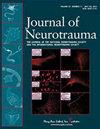认识到脑外伤是一种慢性疾病:评论。
IF 3.9
2区 医学
Q1 CLINICAL NEUROLOGY
引用次数: 0
摘要
许多临床医生认为,创伤性脑损伤(TBI)造成的残余损伤在初期恢复达到稳定后就会停止。也就是说,在人的余生中,损伤的影响预计不会发生重大变化。几项独立的纵向研究表明,创伤性脑损伤的长期病程最好是动态的,而不是静态的,这就对这一假设提出了质疑。将脑损伤视为一种慢性疾病的医疗保健服务将鼓励开展自我管理教育,以改善或保护健康,并提供可预测常见并发症的前瞻性医疗保健服务。将鼓励脑损伤患者采用优化健康的生活方式。几乎所有发达国家都投入了额外的公共卫生资源来解决慢性病问题。在美国,医疗保险计划,特别是医疗保险和医疗补助计划,为患有慢性疾病的人提供特定的福利。最重要的益处可能来自于医疗从业人员意识到慢性脑损伤的动态性质,从而更加关注如何更好地为患者服务,以优化病情改善和减少病情恶化。认识到创伤性脑损伤是一种慢性疾病,不仅可以将更多的资源集中在与脑损伤相关的问题上,还可以提高公众和专业人员对如何优化创伤性脑损伤患者的健康和福祉的认识。本文章由计算机程序翻译,如有差异,请以英文原文为准。
Recognition of Traumatic Brain Injury as a Chronic Condition: A Commentary.
Many clinicians believe that residual impairments due to traumatic brain injury (TBI) are static once initial recovery has plateaued. That is, the effcts of the injury are not expected to change significantly over the remainder of a person's life. This assumption has been called into question by several independent longitudinal studies showing that the long-term course of TBI may be better characterized as dynamic rather than static. Healthcare services that recognize brain injury as a chronic condition would encourage education on self-management to improve or protect health, as well as proactive healthcare that anticipates common co-morbidities. Those who have had a TBI would be encouraged to engage in lifestyles that optimize wellness. Almost all developed countries commit additional public health resources to addressing chronic conditions. In the United States, specific benefits are available from health insurance plans, particularly Medicare and Medicaid, for persons experiencing chronic health conditions. Potentially the most important benefit would derive from healthcare practitioners becoming aware of the dynamic nature of chronic brain injury and thus being more attentive to how their patients could be better served to optimize improvement and minimize decline. Recognition of TBI as a chronic condition would not only focus more resources on problems assoiciated with living with brain injury, but would enhance both the public's and professionals' awareness of how to optimize the health and well-being of persons living with the effects of TBI.
求助全文
通过发布文献求助,成功后即可免费获取论文全文。
去求助
来源期刊

Journal of neurotrauma
医学-临床神经学
CiteScore
9.20
自引率
7.10%
发文量
233
审稿时长
3 months
期刊介绍:
Journal of Neurotrauma is the flagship, peer-reviewed publication for reporting on the latest advances in both the clinical and laboratory investigation of traumatic brain and spinal cord injury. The Journal focuses on the basic pathobiology of injury to the central nervous system, while considering preclinical and clinical trials targeted at improving both the early management and long-term care and recovery of traumatically injured patients. This is the essential journal publishing cutting-edge basic and translational research in traumatically injured human and animal studies, with emphasis on neurodegenerative disease research linked to CNS trauma.
 求助内容:
求助内容: 应助结果提醒方式:
应助结果提醒方式:


